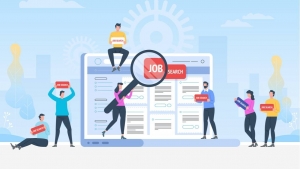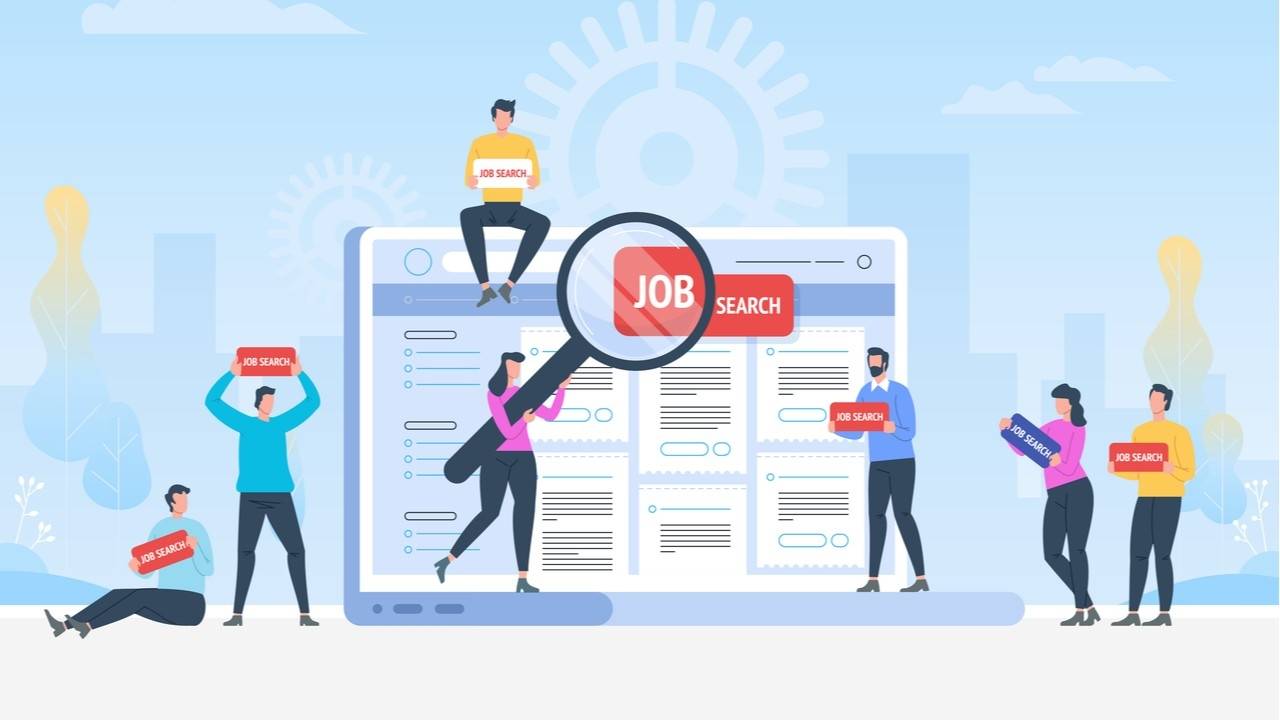The quality of your CV can mean the difference between being stuck in a role with no prospects or being offered a great new position.
Your CV is still the first thing clients ask for and will be the decider between getting an interview and being left out of the recruitment process.
The CV has been around for hundreds of years, and over time it has changed and evolved with the world of work.
As IT recruiters, we have seen the evolution of the CV, and today we are sharing some invaluable top tips to ensure you get on the radar of the best IT employers.
The Purpose of a CV for Employers
Let’s start by thinking about what function your CV serves for employers.
For a start, we should point out that many IT employers are pushed for time, and they are looking for shortcuts in their recruitment process – they want it spelt out to them that you are the candidate they are looking for.
So to fit this requirement, your CV should be highly tailored to the employer or hiring manager that is looking after the recruitment process.
Aim to find out where possible exactly who to address your CV and cover letter to – this makes it stand out more than letters simply addressed ‘Dear Sir/Madam’ and tailor your CV and cover letter specifically to the company and the role you are applying for.
All too often, IT candidates send generic CVs or cover letters – these are usually the candidates who don’t get past the first round of the recruitment process.
In today’s competition-led job market, your CV needs to do the following:
Immediately capture the attention of the recruiter or employer
Illustrate how your skills and abilities clearly relate to the job description
Show how much of a culture fit you are to the organisation
Increase your chance of getting a first interview.
Your CV should be a succinct summary of why you are the ideal candidate for this role.
So let’s look at what makes the ideal IT CV.
Make Sure it’s Relevant
Many people include skills, knowledge and experience on their CV that, although they might be proud of, it is not relevant to this company or role.
Remember the following tips when thinking about what to include in your CV:
- Make sure your CV includes everything the job advert specifies.
- Use similar terminology to that found in the job advert to strike a connection with the employer or hiring manager.
- If there are any areas that you don’t have the required skills, address this by demonstrating your desire to learn, which you can back up with previous examples of learning a new skill for a previous role.
Keep your CV short, and to the point. The ideal length is two pages, but it can be longer if you have lots of relevant experience.
The following are what to include in your CV to make sure it ticks all the right boxes.
Sections to Include
Remembering always to keep it relevant and avoid unnecessarily long explanations or details, structure your CV using these sections.
- Personal details – make sure these are up to date, with your current address, professional email address and correct phone number.
- Your personal statement – this can be a short couple of paragraphs at the top of your CV, which summarises in short why you have the skills and experience which make you an ideal candidate for this role.
- Your work experience – include all of your relevant work experience, which demonstrates your ability to thrive in a similar role. Include the name of the organisation, the time you held the position for and your job title.
- Achievements – give specific examples of your previous achievement, which will allow you to excel in the role you are applying for.
- Education – only include educational achievements which are relevant to the job.
Finally, let’s look at some tips to remember to create an eye-catching IT CV.
CV Top Tips
Even with the right relevant information, your CV will still need to perform in other ways to catch the attention of the hiring manager.
The following are our top tips to get your CV noticed:
Check and double-check that your contact details are up to date – have you changed your mobile number since you created your CV?
Use a professional email address without nicknames or slang in it – if you haven’t got one, create one.
Include a link to your LinkedIn profile – the hiring manager will probably look you up online anyway, you might as well direct them to where they can find your LinkedIn profile.
Don’t include a picture on your CV – it’s an outdated concept and adds no relevance to the recruitment process.
Run your CV through spell check before you print or send it. Also, have someone – a friend or a recruiter - to check for spelling and grammar mistakes.
Choose a font that looks good, but that is clear and easy to read. Make sure the font isn’t too large or too small. Don’t use lots of different sizes or styles of font – simple is best.
Avoid cliches such as ‘go-getter’, ‘think outside the box’ and ‘multi-tasker’ when describing yourself. If you are struggling writing your CV.
Finally, let’s look at the importance of the cover letter to go with your CV.
Your Cover Letter
We often get asked whether you should include a cover letter or not – our answer is always yes!
Your cover letter is another opportunity to show you’ve researched the business and made sure that you’re appropriate for the role. Within your cover letter, you can go beyond the skills and education outlined in your CV to show that you are familiar with the company and explain a little more about yourself and why you want to apply for their vacancy.
Finally
Your CV is your chance to introduce yourself to an IT recruitment company or hiring manager in a meaningful way.
If you can show the person looking at your CV that you match the job description as closely as possible, then you’ll get the interview.
About Inspire People
We believe that technology has the power to change the world for the better and we love working with businesses whose technology or purpose has a positive impact. We help businesses that share our vision access the people, resources and strategic advice they need to achieve their digital transformation goals.
Our service is designed to accelerate your digital growth. We created our offer in response to emerging challenges in an uncertain business landscape: a blend of Advisory, Talent and Project led services that will help you achieve your strategic aims and deliver more for your employees and customers. We’ll connect you to rare specialist talent, experts and insight to help you navigate your biggest challenges and remain competitive in a changed world.
Get in touch today to discover how working with us could help you innovate and grow.
Speak to our expert team on +44(0)20 7871 8550 or email hello@inspirepeople.net
You’ve been offered a new Tech role – congratulations!
There are a few things to do now, firstly, to celebrate and inform your current employers of your resignation.
The second is to think about how you’re going to make a success of your new role.
You know you have the right skills, abilities and experience that your new employer is looking for, so you can relax on that front.
But still, starting a new job can be daunting. You want to prove to your manager and your new colleagues that you’ve got what it takes.
Thankfully, there are a few strategies you can implement from day one.
So here are 7 strategies for creating success in your new Tech role.
1. Knowing Where to Focus Your Efforts
Securing your new role is just the first step in this exciting new part of your career.
Although your recruitment companywill have helped you find a role which perfectly matches your skills, abilities and aspirations, it is not up to you to find out what is expected of you in your new role.
Think about:
- Find out what your manager’s priorities are – and then find out how this relates to you. This might be covered in the onboarding process, but it will help to have defined short, medium and long-term goals to work towards.
- What do you need to do every day in your day-to-day duties?
- What is your manager’s style, and how are you going to develop a relationship with them?
- What are your KPIs, and how will you be evaluated in your new role?
The more you can find out about where you fit into the businesses ultimate goals, the faster you will settle in and can start achieving
2. Demonstrating the Right Skills and Attitude
You will have been hired for your Tech skills, and it is time to put them to good use in your new role.
Think about is there anything you learned in your previous role that you could bring to your new organisation?
You must also demonstrate that you can work well with your new colleagues – and this might mean navigating a few different working styles and figuring out how your new team works and how they communicate.
The key things to remember here are:
- Practice your communication skills and be patient with others – it takes time to form strong working relationships.
- Be flexible – you might have a fixed opinion from your previous roles about how to undertake specific tasks, but now is the time to observe others and fit in with how your new team operates.
- Be pro-active in problems solving – don’t be afraid to take on new challenges in your new role; it shows you are resilient and hard working.
3. Forming Good Habits
It is essential that you maintain professionalism in everything you do, and avoid getting into workplace gossip, even though it might seem like a good way to form initial bonds.
Focus on your results in the early stages of your role; don’t be afraid to ask your manager to clarify that you’re on the right path, but refrain from asking continually about things you aren’t sure of. Save up your questions and ask once a day. If you aren’t sure of what to do at any point, be proactive and find something to do – ask your new colleagues if they need help.
4. Active Listening
Active listening is different from the type of listening that most people demonstrate – that is, listening with the intent of responding, and not listening deeply to what it is the other person is saying.
You can learn a lot more when you focus intently on the things your new colleagues and manager say to you. You can absorb so much about the company, the people, your role and the industry when you actively listen.
So, never make assumptions – and actively listen to your peers; you might be surprised at how much you learn.
5. Always Learning
We can all be guilty of believing that we have nothing left to learn about a particular subject, especially if it’s an IT issue that you are very familiar with.
But the start of a new role should be a reminder than there is always more to learn.
Once you have your new role parameters and goals clearly in your mind, you can then look towards your ongoing development.
Speak to your manager about L&D and ask if there are any courses you can take or any in-house training extra to your onboarding that you can partake in.
Remember – every day is a school day!
6. Deciding What to ‘Let Go’ Of
Part of growing in your new role is in realising what you can let go of.
Success is not always about refining your skills and developing new ones; it can also be an opportunity to let go of old habits and mindsets that could be holding you back.
Learn when to say ‘no’; notice when you are more likely to procrastinate or become distracted, and finally, say goodbye to the fear of failure.
Starting a new role is a powerful thing, and it can be the opportunity to be the ‘you’ you have always wanted to be.
7. 30, 60 and 90 Day Plans
And lastly, success will not happen on its own – is must be planned for.
The onboarding process in your new IT role should set the objectives of your position; however, the detail and specificity of onboarding programmes can vary between organisations.
So it is advised that you set yourself some 30, 60 and 90-day goals – even if they are just personal goals that you want to achieve in your new Role.
Achieving personal targets related to your new Role is a great way to boost your confidence and draw success towards you.
30, 60 and 90-plan have been proven time and again to be a really effective way of helping people achieve their goals.
Finally..
Are you just about to embark on the excitement of a new Tech Role? Or perhaps you’re looking for your next opportunity and aren’t sure where to start your new job search.
If so, we can help.
We help Tech candidates just like you find great new career opportunities. From CV help, and interview prep to careers advice and organising interviews for you.
About Inspire People
We believe that technology has the power to change the world for the better and we love working with businesses whose technology or purpose has a positive impact. We help businesses that share our vision access the people, resources and strategic advice they need to achieve their digital transformation goals.
Our service is designed to accelerate your digital growth. We created our offer in response to emerging challenges in an uncertain business landscape: a blend of Advisory, Talent and Project led services that will help you achieve your strategic aims and deliver more for your employees and customers. We’ll connect you to rare specialist talent, experts and insight to help you navigate your biggest challenges and remain competitive in a changed world.
Get in touch today to discover how working with us could help you innovate and grow.
Speak to our expert team on +44(0)20 7871 8550 or email hello@inspirepeople.net







